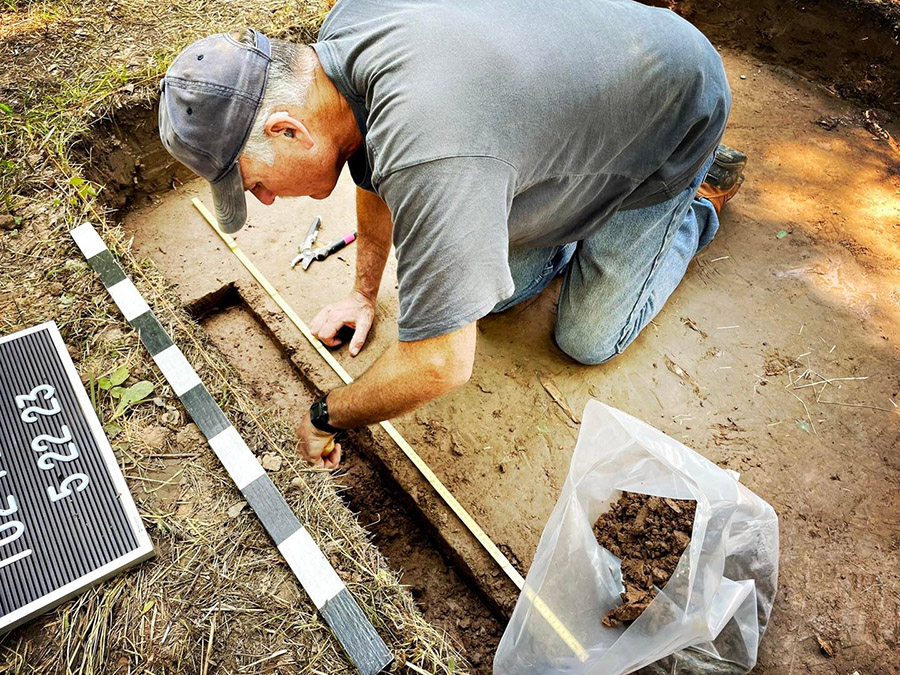
The Arkansas Archeological Survey (ARAS) research station at the University of Arkansas at Monticello (UAM) serves a seven-county area in the southeastern corner of the state. These counties are Ashley, Bradley, Chicot, Cleveland, Desha, Drew, and Lincoln. Here the UAM station archeologist and station assistant maintain a research laboratory and artifact collections from hundreds of sites across the region. Among these are dozens of mound sites, including Lake Enterprise, the oldest mound site documented in Arkansas, built by Poverty Point people more than 3,000 years ago. These also include many Dalton stone point sites identified in the 1960s, showing that people lived along the western banks of the Mississippi River up to 10,000 years ago. The entire station area encompasses lands forcibly ceded by the Quapaw Nation in 1818 and 1824, including their final lands ceded on the south side of the Arkansas River, and those counties that border the river (Lincoln and Desha) have many sites associated with not only the Quapaws but also the Tunicans before they moved south to Mississippi and Louisiana during the 1600s as well as Choctaws who maintained territories to the east in Mississippi prior to Indian removal. Hernando de Soto’s entrada traveled along both sides of the Arkansas River in 1542, and it is thought that Soto met his fate in what is today Desha County. The station area is also home to dozens of plantation sites, places where enslaved people were forced to labor prior to the American Civil War and where the descendants of enslaved African Americans migrated to work as sharecroppers and tenant farmers until the 1950s.
The archeological research laboratory is located within UAM’s visual and performing arts building. The station archeologist serves as the sole anthropology faculty member and teaches courses every spring semester. The station archeologist and station assistant collaborate closely with the Tunican chapter of the Arkansas Archeological Society (AAS), developing opportunities for society members to volunteer in both field and lab projects. They also maintain relationships with county historical societies in the station area.
In the Media
UAPB program gives closer look at history
Will Hehemann, The Pine Bluff Commercial
April 17, 2024
Digging for (history) gold: Archaeological dig focuses on plantation workers
Cary Jenkins, Arkansas Democrat-Gazette
September 10, 2023
Rohwer Reconfigured: Interactive website sparks new interest in state’s Japanese internment camps
Arkansas Democrat-Gazette
November 10, 2019
History in grasp: Collections of archaeological discoveries tell of Arkansas’ past
Arkansas Democrat-Gazette
September 8, 2019
Drawing on history: Pioneering black editorial cartoonist also worked in state
Frank Fellone, Arkansas Democrat-Gazette
January 18, 2015


